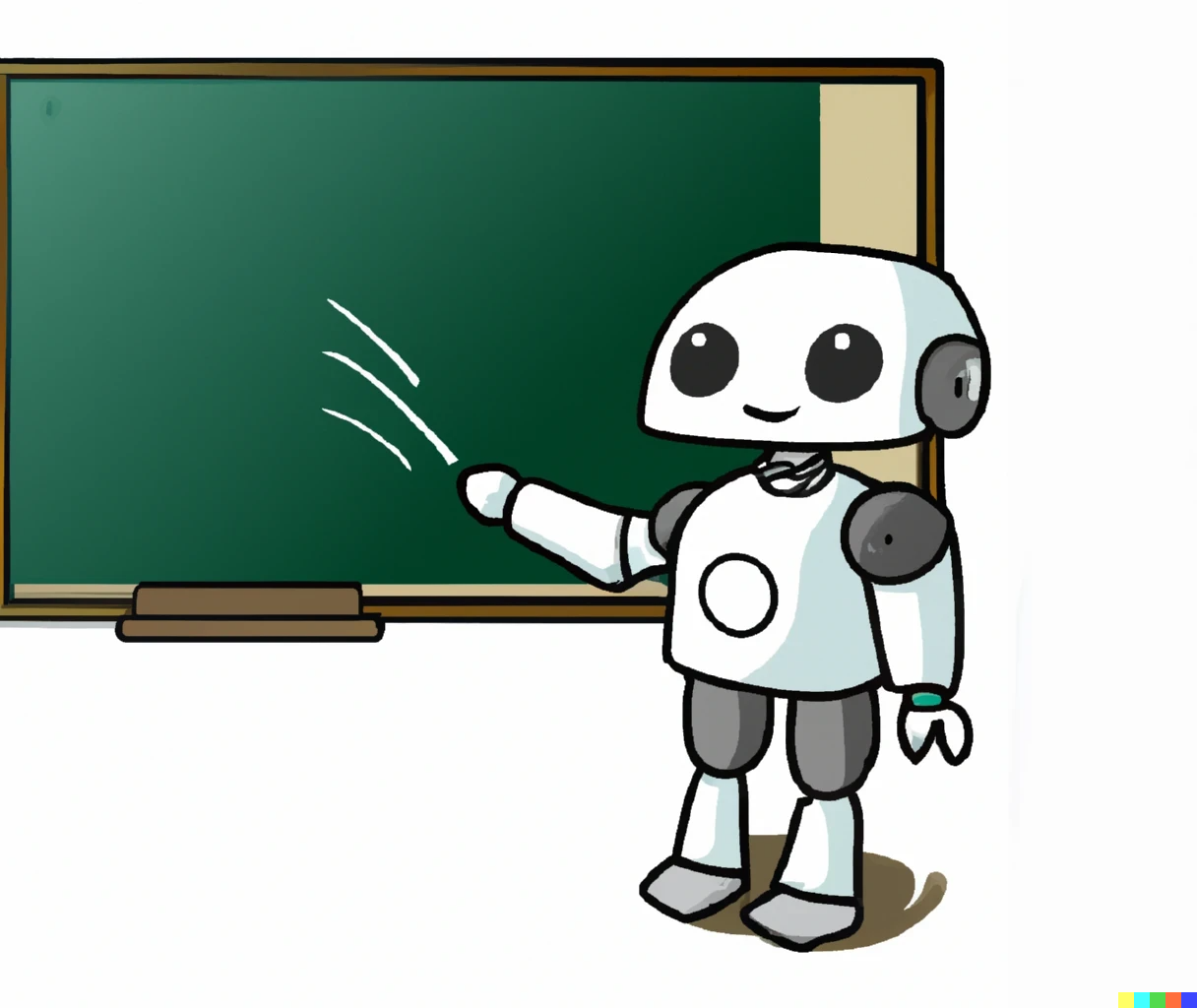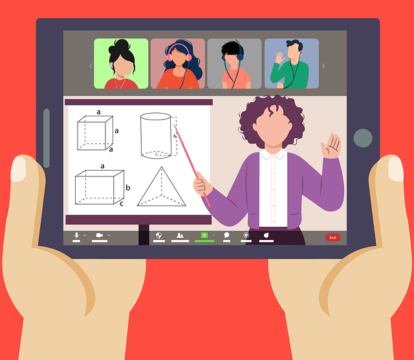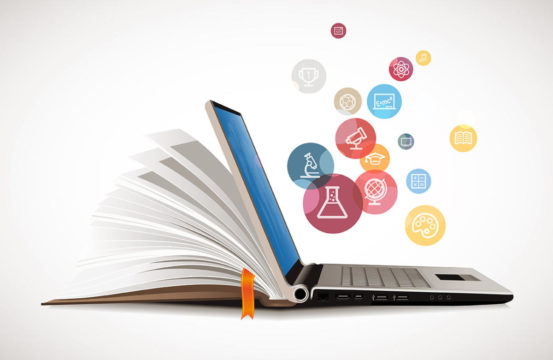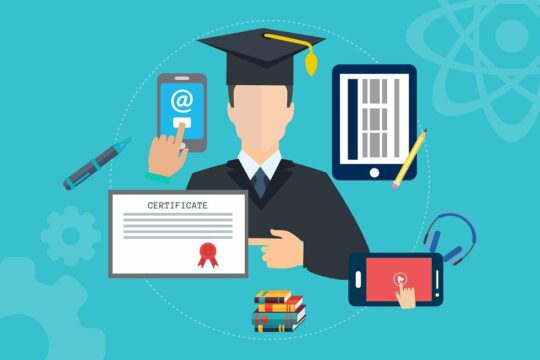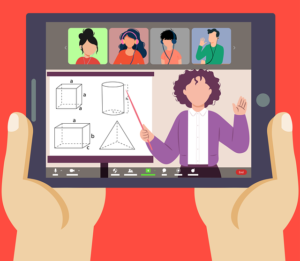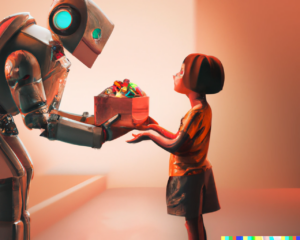Education is just one industry that artificial intelligence (AI) is transforming. Although a lot of discussion has centered on AI’s ability to personalize learning, its applications go far beyond creating unique learning paths for each student. The use of AI in education is changing the way that we administer, teach, and learn in educational institutions. This article examines the evolution of AI in education, highlighting its diverse effects that go beyond tailored instruction.
AI is changing education by increasing administrative effectiveness, empowering teachers, aiding special education, raising student engagement, and encouraging collaborative learning
Enhancing Administrative Efficiency
The use of AI in administrative activities is one of the important if less glamorous, applications in education. Administrative procedures like scheduling, registration, and resource management can be made more efficient by AI-powered solutions. Chatbots and virtual assistants, for example, can answer common questions from parents and kids, saving administrative personnel important time to work on more difficult problems. AI is also capable of automating assessment and grading, especially for objective exams and assignments. This reduces the effort for teachers and provides instant feedback.
Empowering Educators
Teachers are becoming more capable thanks to AI solutions that give them access to cutting-edge materials and insights based on data. With AI’s ability to analyze enormous volumes of educational data and spot trends and patterns, teachers can gain a more thorough understanding of their students’ strengths and weaknesses. With the help of this data-driven method, teachers can more effectively customize their pedagogical approaches, creating a more favorable learning environment.
Read more: ‘Upskilling in a scalable way will need a pedagogy shift’
AI can also help with professional development by providing teachers with individualized learning pathways. Based on their unique needs and teaching styles, educators can obtain recommendations for tools, training courses, and best practices. This ongoing, individualized professional development makes sure that educators are prepared to meet the changing needs of the classroom.
Supporting Special Education
AI is revolutionizing special education by offering individualized support to pupils with a range of learning needs. Artificial intelligence (AI)-driven technologies, like natural language processing and speech recognition, can help students with impairments access educational materials. For instance, AI-driven text-to-speech programs can help students who are blind or deaf, and real-time speech-to-text translation services can help students who are hard of hearing.
AI can also assist in the creation of individualized education plans (IEPs) by evaluating data on student performance and suggesting particular modifications and interventions. This guarantees that every student gets the assistance required for both academic and social success.
Enhancing Student Engagement
Successful learning depends on engagement, and artificial intelligence (AI) is revolutionizing the creation of more dynamic and captivating learning environments. With the help of artificial intelligence (AI), virtual reality (VR) and augmented reality (AR) are converting conventional classrooms into immersive learning spaces. These technological advancements make learning more engaging and approachable by bringing abstract ideas to life.
Gamification powered by AI is yet another cutting-edge strategy for raising student engagement. Artificial Intelligence (AI) has the potential to enhance learning experiences by introducing game-like aspects into academic tasks. As they complete tasks, advance through stages, and overcome obstacles, students’ learning becomes more engaging and joyful.
Fostering Collaborative Learning
AI can also help with collaborative learning by putting students in touch with experts, mentors, and peers throughout the globe. Peer-to-peer learning and cooperation can be fostered by matching students with complementary skills or comparable interests through intelligent tutoring systems and collaborative platforms. This improves learning results while also assisting students in acquiring critical soft skills like problem-solving, cooperation, and communication.
Ethical Considerations and Challenges
Although artificial intelligence (AI) has a lot of promise for education, there are several ethical issues and difficulties with it as well. Data security and privacy are critical because educational institutions need to make sure that student data is shielded from hacking and improper use. In order to prevent biases and guarantee fairness in educational assessments and recommendations, transparency in AI algorithms is equally essential.
Furthermore, the use of AI in education shouldn’t result in the marginalization of traditional teachers. AI should not be seen as a substitute for teachers, but rather as an instrument to support and improve them. The human element in education—mentorship, emotional support, and empathy—remains important.
A New Era of Opportunities
AI’s advancement in education is bringing in a new era of opportunities that go well beyond individualized instruction. AI is changing education by increasing administrative effectiveness, empowering teachers, aiding special education, raising student engagement, and encouraging collaborative learning. To guarantee that AI functions as a complementary tool that enhances the educational experience for all stakeholders, it is imperative to address the ethical issues. Our attention must remain fixed on developing an educational system that is more accessible, equitable, and productive even while we investigate and utilize AI’s possibilities.

Guest contributor Sarvagya Mishra is the Co-founder & Director of Superbot, an AI-powered voice agent startup based out of Gurugram. Any opinions expressed in this article are strictly those of the author.



